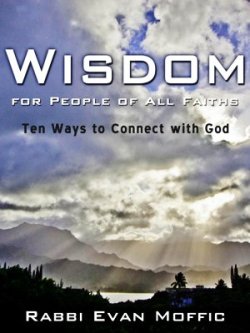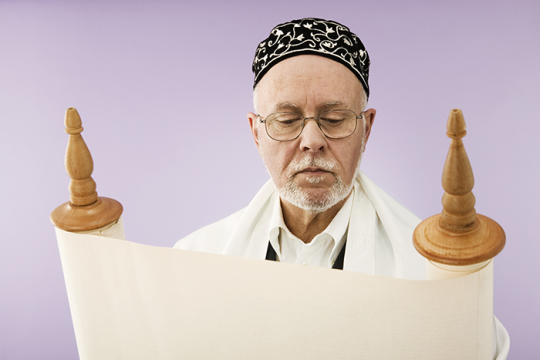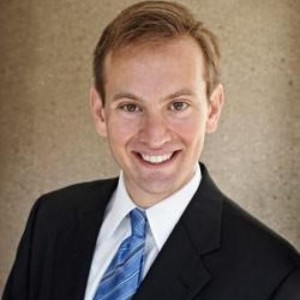
Once upon a time, a wise man met with a king. The king challenged the man with a riddle. He said, "In my hands is a small bird. Is it alive or dead?" The wise man paused and looked down.
The wise man thought to himself, "If I say it is alive, he will close his hand and crush it. If I say it is dead, he will open his hand and let it fly away." The wise man turned his head up and said in a soft yet commanding voice, "It's all in your hands."
The same is true for us. Our lives are in our hands. It is not always easy. We face struggle, challenges, difficulties. Yet, like the biblical Jacob, we can derive blessings from them. We can, to use the beautiful phrase of our late teacher Debbie Friedman, "find the courage to make our lives a blessing."
I believe Judaism's gift to the world is teaching us how to do so. To make our lives we blessings, we need to do two things: count our blessings and speak our blessings.
Counting our blessings
As a father of two young children, I am truly blessed. Yet that's easy to forget at 3:00 a.m. when one child's loud crying wakes up the other.
One of the ways I remind myself is by following an ancient Jewish custom. In Judaism the first thing we are supposed to do each morning is sit up and say the words, "I am grateful to you, Oh God, who has restored my soul from sleep and given me the breath of life."
No sighing. No turning our pillows over and burying our heads in them. We recognize the blessing of life. We prime ourselves to live with gratitude. We count our blessings and find happiness in them.
Saying blessings
It is not enough, however, to recognize and count our blessings. We have to say them. Acknowledge them. Speak them. That's why the ancient Jewish sages urged us to say 100 blessings a day!
Something magical happens when we give expression to our feelings. About a month ago, I saw an example of this magic. I was in my office when a member of my congregation came by. He had a burning question.
"I was dining at a restaurant in New York," he began. "A few tables away from me a man stood up and proposed to his girlfriend. She said yes, and everybody in the restaurant cheered. Then the man walked quietly over to a corner, put on a yarmulke (a Jewish ritual headcovering), and said some type of blessing. His and his fiance's eyes filled with tears. Rabbi, do you have any idea what blessing he said?"
I recited a blessing I thought it might be, and he said, "Yes, that's it! Do you have a copy?" "Sure," I said. "Why do you ask?"
"I am planning to propose to my girlfriend this weekend, and I want to say it with her."
With tears in my eyes, I handed him the blessing.
How a Blessing Works
Blessings express our feelings. They need not be traditional ones. They simply need to come from the heart. When they do, they can change our lives.
I experienced this truth near the end of my grandfather's life. We were very close. Up until his death, I tried to talk to or visit him every day. We would usually end our conversations with my saying "Talk to you tomorrow." We did not say, "I love you." He was not a warm fuzzy kind of guy, and it just did not feel right.
But during the last few weeks of his life, something changed. Perhaps it was the birth of my daughter Hannah, or perhaps it was his declining condition. Our moments became more fused with meaning.
When I Said I Love You
A month before he died, I was sitting by his bed and we were talking. As I got up to leave, I felt a twitch in my stomach. I turned to him and said, "Grandpa, I love you." He didn't say anything.
But our connection had changed. Thereafter, we ended each conversation with me saying, "I love you." Saying 'I love you' to our dearest ones blesses them and us. It is a way we make our lives a blessing. It is something each of us can do today, tomorrow and for the rest of our lives.
This post is an excerpt from the new book, Wisdom for People of All Faiths: Ten Ways to Connect with God , by Rabbi Evan Moffic. Rabbi Moffic serves as rabbi of Congregation Solel in Highland Park, IL. He loves synagogues and the way they bring together members of every generation to study and experience Jewish wisdom and tradition.
Related Posts

Dear Israel: A Story of Love and Longing

Becoming B’nei Mitzvah at Any Age

